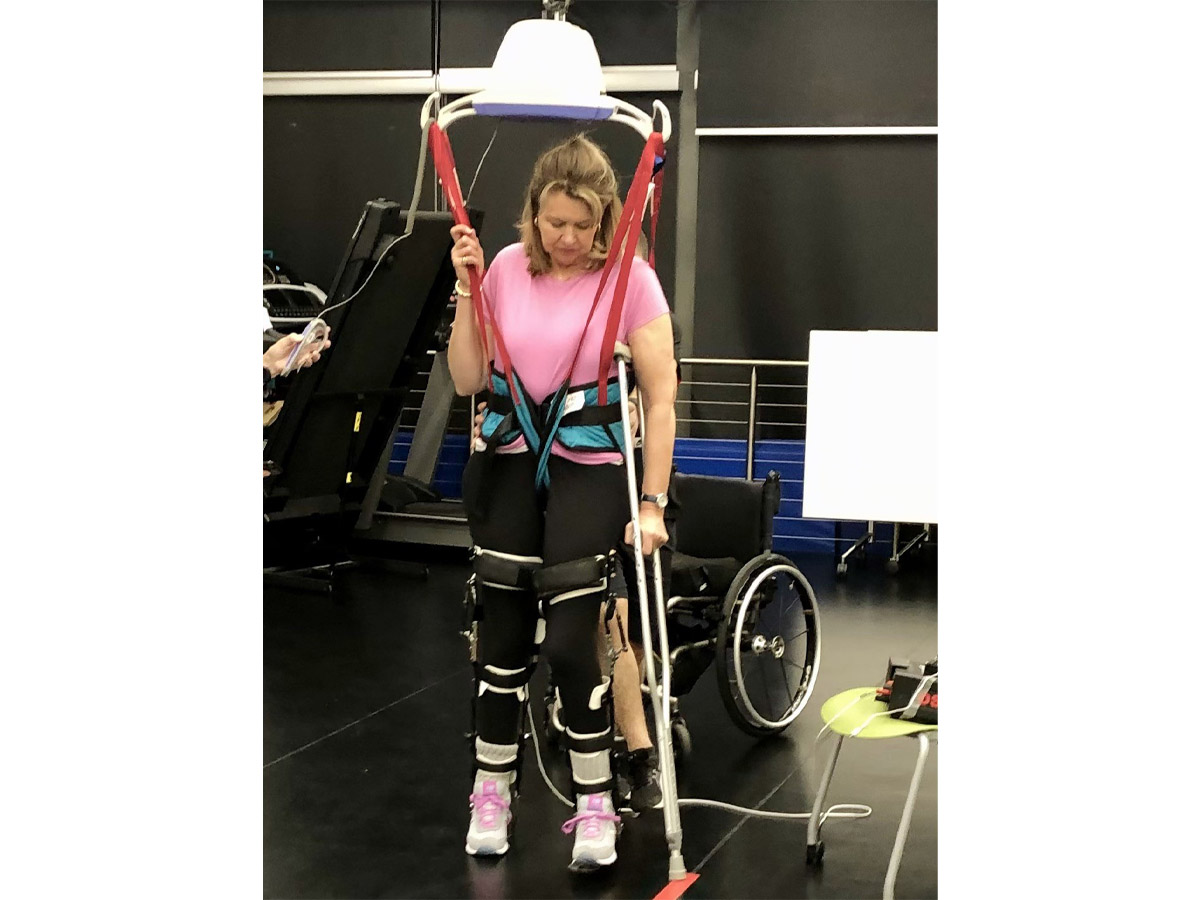A landmark international trial, aimed at improving the lives of individuals living with paraplegia, has put a callout for participants.
The eWALK neurostimulation trial unites spinal stimulation with step and walking training to assess its capacity to restore spinal cord function. The trial aims to recruit participants, with approximately half already enrolled and treated. The objective is to conclusively ascertain whether the intervention improves function.
Utilising a randomised controlled design the 12-week program will be conducted at sites in Sydney and Melbourne. Grants are available for individuals from NSW and Victoria rural and regional areas to relocate for the duration of the trial.
Volunteers are also encouraged to participate in the eWALK trial, provided they are willing to cover their accommodation and transportation expenses throughout the trial period at either of the two trial sites. The primary objective of the trial is to enhance participants’ walking ability, while also delving into assessments related to neurological function, spasticity, quality of life, and the potential underlying mechanisms at play.
Eligible individuals must be aged 16 or older, with a received a diagnosis of a spinal cord injury within the T2 to T11 range, at least one year ago. Essential criteria include the capability to take a few steps, up to 10 metres, with the assistance of two therapists or fewer, and some voluntary muscle contraction in specific muscle groups.
Sheree Palmer, who has T11 paraplegia, participated in the eWALK trial earlier this year, and despite using a wheelchair since a spinal embolism in 2008, her participation in the eWALK trial brought renewed hope.
“The eWALK trial was both challenging and invigorating. While safety considerations required me to utilise a harness throughout the trial, with the assistance of callipers, I progressed from walking between parallel bars to confidently using a single crutch by the trial’s conclusion,” she said. “I also experienced significant enhancements in my walking ability, marking a profound and positive milestone in my ongoing pursuit of a cure. This journey not only strengthened my legs and fitness but also reignited a sense of hope that has been dormant for years.”
SpinalCure Australia CEO Kathryn Borkovic, said research has come a long way in the past decade, and neurostimulation is recognised as the most promising experimental therapy, capable of being developed for wider distribution in a few years. “In smaller studies overseas, participants have experienced a return of walking, upper limb grip and movement, and other bodily functions such as bladder and bowel. Given that we are trialling a non-invasive method, it does not require surgery and is comparatively safer than other scientific avenues being pursued globally,” she said.
The trial is being funded by SpinalCure Australia and CatWalk Trust NZ, with support from Spinal Cord Injuries Australia. SpinalCure are hoping to have the trial completed early 2024.
To obtain detailed information and register for this transformative trial, visit https://www.spinalcure.org.au/campaigns/ewalk/
Photo: Sheree Palmer

